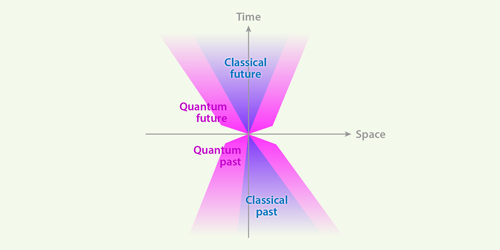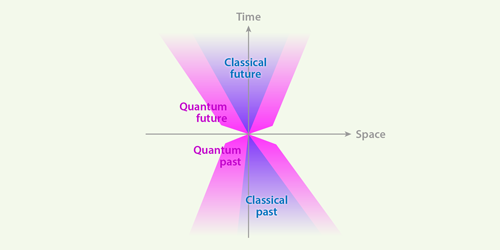Quantum Signals Outpace Classical Ones
Rumors and bad news spread quickly, but they could travel even faster if they were quantized. A new theoretical work explores the limits of this quantum speedup in a model system based on computational grids called cellular automata. The authors show that quantum signals can initially travel much faster through the grids than classical signals. However, for time-symmetric cases (when forward signal speed equals backward speed), the quantum advantage eventually disappears.
A well-known example of quantum speedup is in random walks. In the classical case, the walker travels, on average, a distance proportional to the square root of the time elapsed. A quantum walker, by contrast, benefits from the phenomenon of quantum superposition that allows it to travel at a faster rate (the distance grows linearly with time).
Researchers from France and Germany investigated the quantum speedup for nonrandom systems. As a representative case, they chose cellular automata grids, which evolve based on well-defined rules and can model hydrodynamical and other physical systems. Each cell in the grid has a value, which is computed during each time step using the values of cells in a local neighborhood. The size of this neighborhood determines the speed with which information (concerning a change in the value of one cell, for example) travels through the grid. The researchers showed that such signals can travel faster if cells are allowed to be in quantum superpositions—effectively increasing their neighborhood size. This speedup is most prominent in the initial steps. As time wears on, the quantum speed approaches a limit that depends on how fast classical signals travel backwards in time.
This research is published in Physical Review A.
–Michael Schirber
Michael Schirber is a Corresponding Editor for Physics based in Lyon, France.





